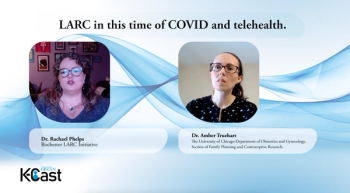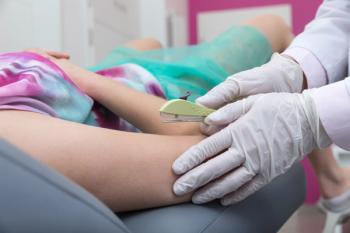
Patient experience with immediate postpartum LARC program
English-speaking women were nearly four times as likely to be offered immediate postpartum long-acting reversible contraception (LARC) than Spanish-speaking Hispanic women, according to a study in the journal Women’s Health Issues.
The retrospective study compared characteristics of 199 postpartum women who recalled being offered or not offered intrauterine devices and implants, and that they obtained these devices prior to discharge from a county hospital, the University of Texas System UT Health San Antonio, between October and December 2015.
Eligible women were aged 18 to 44, spoke either English (n = 78) or Spanish (n = 121) and delivered with public insurance (Medicaid or Emergency Medicaid) or no insurance. Participants were also limited to those who desired to wait at least 2 years before having another child.
Of the entire cohort, 37% received an immediate postpartum LARC device, 12% had an intrauterine device (IUD) placed immediately after delivery, and 25% had an implant placed before discharge.
The women were interviewed face-to-face in either English or Spanish while still in the hospital postpartum after delivery (baseline) and by phone at 3, 6, 9, 12, 18 and 24 months postpartum.
Overall, 51.8% of subjects recalled providers offering them immediate postpartum LARC.
English-speaking women were much more likely to be offered immediate postpartum LARC: adjusted odds ratio (OR) 3.88; 95% confidence interval (CI):1.33 to 11.23.
In addition, compared to younger women (aged 18 to 24) who wanted more children, older women (aged 30 to 34) had a lower adjusted OR of 0.14; 95% CI: 0.03 to 0.59.
“This finding is possibly due to providers' implicit biases or greater demand for LARC versus sterilization,” said senior author Cristina Wallace Huff, MD, an assistant professor of ob/gyn at the University of Texas System UT Health San Antonio.
Sterilized women (aged 18 to 44) also had a lower adjusted OR of 0.02; 95% CI: 1.13 to 11.67.
“I was most surprised by the lower recall of Spanish-speaking Hispanic women for being offered the devices,” Wallace Huff told Contemporary OB/GYN. “As providers, we think we are doing our best to equitably offer contraception to our patients. However, I believe this finding emphasizes the need for us to improve our communication with our patients and help us recognize that language barriers may hinder patient access to contraception. We need to work to overcome this barrier.”
At 3 months postpartum, 51.4% of women were very satisfied with their LARC, 20.3% were somewhat satisfied and 10.8% were somewhat/very unsatisfied. Satisfaction decreased, though, between 3 and 6 months, mainly due to negative side effects. At 6 months postpartum, 33.8% of women were very satisfied with LARC, 31.1% were somewhat satisfied, and 14.9% were somewhat/very unsatisfied.
Continuation at 24 months postpartum was 76.9%, with no difference between IUD and implant use.
The study demonstrates the opportunity to improve contraception counseling, according to Wallace Huff. “Using formal interpretation services and patient-centered decision-making may improve patient access to their contraceptive method that aligns with their values and preferences,” she said.
But Wallace Huff said increasing access to immediate postpartum LARC is only part of the equation. “We need to improve patient awareness about all of their contraceptive options, so they can make an informed decision on their contraception method,” she said. “Ideally, patients would have access to their contraceptive method of choice and be satisfied with their choice for the duration of the method.”
__
Wallace Huff reports no relevant financial disclosures.
- Huff CW, Potter JE, Hopkins K. Patients' experiences with an immediate postpartum long-acting reversible contraception program. Womens Health Issues. Published online December 12, 2020. doi:10.1016/j.whi.2020.11.004
Newsletter
Get the latest clinical updates, case studies, and expert commentary in obstetric and gynecologic care. Sign up now to stay informed.









